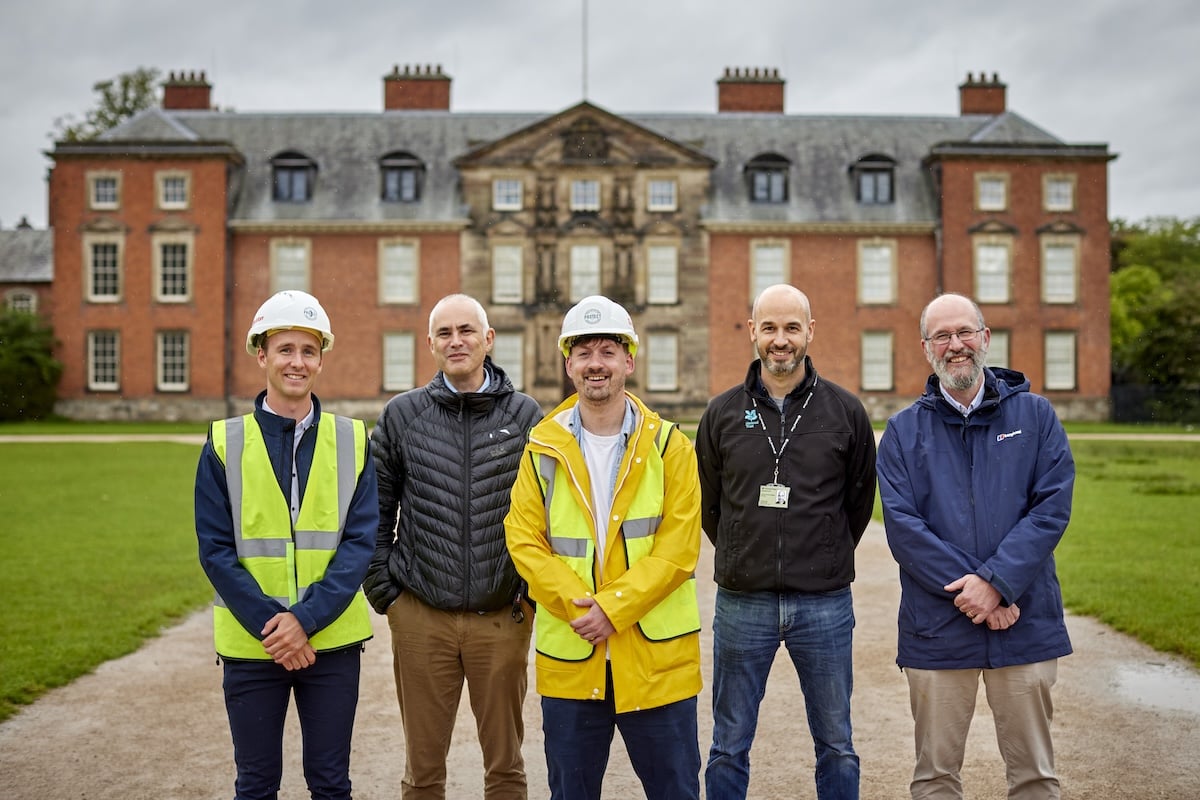Seddon Housing Partnerships, the National Trust and the University of Salford are joining forces to understand how historic properties can be successfully retrofit.
- Seddon Housing Partnerships is leading a PhD project with The University of Salford to investigate how to improve the energy efficiency of historic homes owned by the National Trust.
- Over the course of a three-and-a-half-year project, PhD researcher James Robinson will identify the solutions that are most appropriate for the National Trust's residential properties.
- Seddon Housing Partnerships is sponsoring the PhD and intends to use the findings to help inform its retrofitting work on a wider scale.
- The work will largely focus on homes built pre-1919 and take ecology, wildlife and archaeological interest into consideration.
- The National Trust owns more than 4,500 homes across the UK which are let out to tenants.
- 27 per cent of homes in the UK are classified as ‘historic’ and could benefit from the research and its insights.
A trailblazing collaborative project orchestrated by Seddon Housing Partnerships, the National Trust and the University of Salford is exploring how the energy performance of older homes can be improved.
The Bolton-headquartered construction, maintenance and retrofitting specialist, Seddon Housing Partnerships, will utilise the findings of PhD researcher James Robinson to help inform its work retrofitting homes built in the 18th, 19th and early 20th centuries owned by the National Trust.
The outcomes of the tripartite agreement will help the National Trust to safeguard the future of historic buildings by ensuring their viable future use, while simultaneously investigating material issues that could be affecting properties of a similar age nationwide. The project builds on the existing relationship between Seddon Housing Partnerships and the University of Salford on the Energy House project. Regan Costello, says: “Heritage and historic properties are some of the greatest retrofit challenges we face. Homes of this type have some of the lowest EPC ratings in the private rented sector and works to the facade, like external wall insulation, are not possible if you want to maintain the historic look and feel of a building."
“With this project we are hoping to develop a framework that will inform how we deliver heritage retrofit taking into account all of the constraints that come with heritage buildings nationally. The work will identify current policy requirements, develop an understanding of the drivers for the sector, while ascertaining what the material problems are and how we can rectify them effectively and appropriately.”
The National Trust owns 4573 residential-let properties across its estate nationally, a significant number of which are in rural locations. Some do not have access to mains gas. The National Trust is constantly reviewing the condition of tenanted properties and looks to improve energy efficiency where possible. Dr Samantha Organ, Senior Buildings Asset Manager at The National Trust, said: “As Europe’s largest conservation charity, supporting the journey to net zero carbon, both within our own estate and nationwide, is hugely important for us. We look after more than 28,000 buildings and built structures, the vast majority of which are historic and which are in active use either as housing, or in support of our charitable purpose. Making those buildings more efficient will be a critical part of achieving our sustainability goals.
“We're hoping to gain a lot of insight on this journey. It is experimental, but we need to know what kinds of challenges, either in terms of materials, or skills or supply chain, that we will need to overcome if we want to deliver this retrofitting work at pace and what the end results are likely to be.”
The initial strand of the work forming the basis of the PhD project will look at properties in the north of England. PhD student, James Robinson, will be undertaking the work overseen by the University of Salford. Robinson’s research will examine the existing technologies available to homeowners and landowners and establish what the most effective and suitable processes would be in a historic home. He will utilise the University of Salford’s Energy House labs, a research and testing laboratory unique to the institution. He says: “By bringing together the National Trust, the University of Salford and Seddon Housing Partnerships, we’re combining the best insights from industry, academia and conservation. This project is a one-of-a-kind, having not been taken on before and it has the potential to impact people’s lives across the UK. “This kind of work will be imperative to ensuring that the UK hits its carbon reduction goals, but will also go a long way to helping people living in historic buildings to understand how they can make a difference and reduce their own bills.”
Professor Richard Fitton MRICS from the University of Salford, said: “We are delighted to be working with Seddon and the National Trust on this PhD project. “Heritage buildings have often been overlooked or even mistreated in terms of retrofit, and as the industry is now developing more and more solutions to improve these buildings, the process of finding what works and doesn’t is crucial, not only for the energy savings aspects, but in terms of delivering healthy homes”
Once the work has been completed, Seddon Housing Partnerships will evaluate the results before taking advantage of the lessons learnt and demonstrating to the sector as a whole that the completed framework will pick up every eventuality and can be practically utilised nationally. Costello adds: “We believe that the findings of this project will be nationally significant and could help inform future policy. We also think that it might help improve the accuracy of the environment ratings system;we know of properties with F rated Energy Performance Certificates that are actually performing much better than their rating would indicate.”
Costello and colleague James Robinson have both undertaken the Level 3 Award in Energy Efficiency for Older and Traditional Buildings. Owen Smith, technical advisor at Seddon Housing Partnerships also achieved his Level 5 Retrofit Coordinator, DEA & full sapphire qualification in anticipation of the programme.
